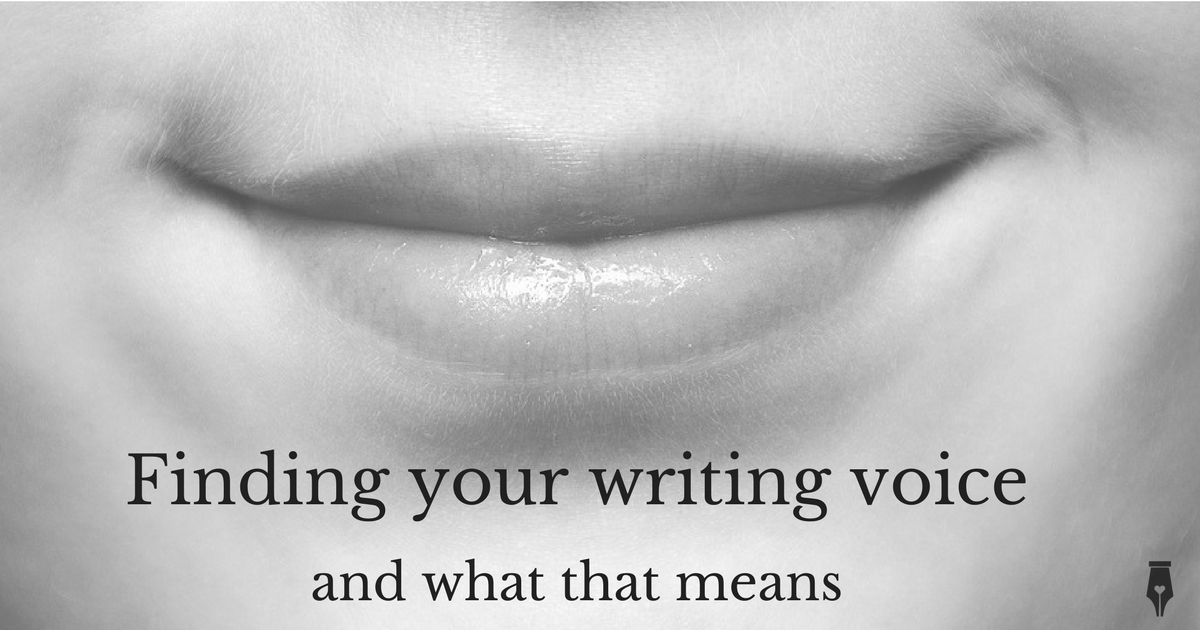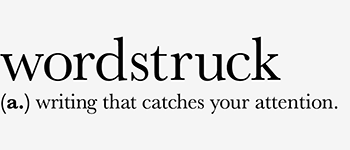
A lot of writing advice talks about ‘finding your voice’. But what does that mean?
We all have a unique ‘physical’ voice. The tone, accent and language you use are formed from a unique mixture of your background and education; where you’ve lived and worked; who you’ve associated with, who you admire and whose customs you adopt.
Speaking vs writing
Studies have shown that we start to recognise human voices in the womb. In the early stages of human evolution, being able to distinguish whether someone was friend or foe in the dark, would have been an important survival trait.
In contrast, writing is something we’re taught to do. It’s a skill we have to learn and it doesn’t come as naturally as speaking. So our writing voice is more likely to be influenced by education, and what we’re taught about writing.
And that’s where there’s can be a disconnect between our speaking and writing voices. In being taught to write, we assimilate all these ‘rules’ about grammar, spelling and punctuation. And they can sometimes get in the way, making us fearful of making a mistake when we write.
What happens when we write?
I’ve seen it more times than I care to remember in business communications. When someone picks up a pen or taps their fingers on a keyboard, their ‘voice’ changes. It becomes more formal. It looks for clever sounding phrases. It adopts things it’s seen written elsewhere in a bid to sound professional.
 That’s how you end up with nonsense like “leveraging our partner ecosystem” and “assuring you of our best attention” (an email sign off that I used to see on a daily basis).
That’s how you end up with nonsense like “leveraging our partner ecosystem” and “assuring you of our best attention” (an email sign off that I used to see on a daily basis).
Say those phrases out loud. How do they feel?
That’s a tip I use in my business writing workshops.Read what you’ve written out loud. Ask yourself ‘Would I actually say that?
Read what you've written out loud. Ask yourself 'Would I actually say that?' Click To TweetIf you have to mentally wrinkle up your nose, or adopt an unfamiliar tone to say it, then it’s not natural and authentic. And your audience, your customers will sense that.
Why our spoken and written voices differ
When we speak, our communication is spontaneous. We don’t use complete sentences. We get distracted. We intersperse our words with pauses, umms and errs that give us time to think.
When we speak, our body language, facial expressions and tone give clues to our meaning and intention. We understand if someone is being sarcastic, joking or being serious. Our spoken voice is full of our personality.
When we write, we don’t have these extra clues to illustrate our meaning. The words we use have to do all the work. So it’s important that they are clear.
But your written voice can represent your personality in the same way that your spoken voice does. Use words to paint a picture, tell a story, conjure up ideas in another person’s mind. Drop in a colloquial phrase or a favourite word. It’s all about being authentic.
Use words to paint a picture, tell a story, conjure up ideas in another person's mind. Click To TweetFinding a voice for my clients
 In writing for clients I have to adopt voices. It’s a bit like being a impressionist. I listen to them talk about their business. I read their written content carefully. I look for words and phrases they use and mimic their rhythm and style.
In writing for clients I have to adopt voices. It’s a bit like being a impressionist. I listen to them talk about their business. I read their written content carefully. I look for words and phrases they use and mimic their rhythm and style.
When I adopt a brand voice for a client, it’s often about dialling up or dialling down certain elements. One client has a lovely chatty tone of voice, so as I write for them, I imagine popping into their kitchen for a cuppa.
Another client is incredibly creative, bursting with ideas and enthusiasm. I throw in words that appeal to the senses and drop in a one-word sentence for impact.
How I help improve your writing voice
Sometimes my job is to give a client’s voice clarity. I edit out words that you don’t need, strip away the fluff and focus on what matters so that you present the best version of your business.
Sometimes my job is to give a client’s voice a confidence boost, so instead of words like ‘maybe, might, a bit’, I use words like ‘can, will and lots’.
 Often my job is to give your communication clarity. That means structure and punctuation that makes it easy to read. It’s a bit like a singing coach showing you where to breathe when singing a complicated line.
Often my job is to give your communication clarity. That means structure and punctuation that makes it easy to read. It’s a bit like a singing coach showing you where to breathe when singing a complicated line.
When I correct grammar and spelling, it’s about avoiding distractions, and preventing you from looking stupid. Think of me as the friend who’ll tell you that you have spinach in your teeth, or your dress tucked into your knickers before you head out to impress someone.
Think of me as the friend who'll tell you that you have spinach in your teeth Click To TweetAs a copy and content writer, I choose my words carefully. The trick is to keep my client’s voice, but give it a tidy up. Just like you might brush your hair more carefully and put on a clean shirt for an important meeting.
The voice I use in these blog posts is mine. A unique mixture of my background, education, influences and interests. You may not be able to detect my accent, but my writing voice is authentically mine.

